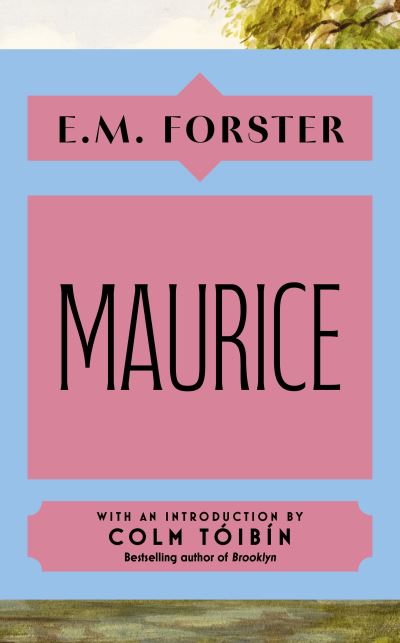LoveReading Says
Published posthumously in 1971, this novel remains one of the great queer romances to this day.
Forster understood that his homage to same-sex love, if published when he completed it in 1914, would probably end his career. Thus, Maurice languished in a drawer for fifty-seven years, the author requesting it be published only after his death.
Set in early 1910s England, the Maurice tells the story of Maurice Hall and his best friend Clive, and the life they attempt to build together in London, which is ultimately destroyed by societal conventions.
As Maurice makes his way through a traditional English education, he projects an outer confidence that masks troubling questions about his own identity. Frustrated and unfulfilled, a product of the bourgeoisie he will grow to despise, he has difficulty acknowledging his nascent attraction to men.
At Cambridge he meets Clive, who opens his eyes to a less conventional view of the nature of love. Yet when Maurice is confronted by the societal pressures of life beyond university, self-doubt and heartbreak threaten his quest for happiness.
A brilliant and beautiful gay classic.
Included in our '35 LGBTQ Books to Read this Pride Month and Every Month' collection.
LoveReading
Find This Book In
Maurice Synopsis
A stunning new edition of Forster's classic queer novel, with a new introduction by Colm Tóibìn, bestselling author of Brooklyn and Long Island
'A monument to a moment when change seemed possible'
COLM TÓIBÍN
'It shows the quality of a novelist at the height of his powers'
SUNDAY TIMES
'His heart leapt alive and shook him to pieces. It cried "You love and are loved."'
Maurice Hall grows up in comfort and privilege near London, in a villa surrounded by pines, where all is convenience and ease. He progresses through a traditional English education, projecting an outer confidence that masks troubling questions about his unspoken desires.
At Cambridge University, Maurice meets Clive, an assured older student, with whom he enjoys a close and intense relationship. Sneaking around college, climbing through windows and skipping lectures, Maurice begins to grasp a less conventional view of the nature of love. And then, on a trip to Clive's family estate, he meets Alec, the gamekeeper, and his emotional and sexual awakening reaches its height, opening up the possibility of a life that strays from the path he was raised to follow. But can Maurice overcome societal pressures, self-doubt and heartbreak to find happiness?
Forster completed Maurice in 1914 but felt that it could not be published in his lifetime. It was not until 1971, the year after Forster's death, that the novel was finally published.
About This Edition
About E. M. Forster
Edward Morgan Forster was born in London in 1879, attended Tonbridge School as a day boy, and went on to King's College, Cambridge, in 1897. With King's he had a lifelong connection and was elected to an Honorary Fellowship in 1946. He declared that his life as a whole had not been dramatic, and he was unfailingly modest about his achievements. Interviewed by the BBC on his eightieth birthday, he said: 'I have not written as much as I'd like to... I write for two reasons: partly to make money and partly to win the respect of people whom I respect... I had better add that I am quite sure I am not a great novelist.' Eminent critics and the general public have judged otherwise and in his obituary The Times called him 'one of the most esteemed English novelists of his time'.
He wrote six novels, four of which appeared before the First World War, Where Angels Fear to Tread (1905), The Longest Journey (1907), A Room with a View (1908), and Howard's End (1910). An interval of fourteen years elapsed before he published A Passage to India. It won both the Prix Femina Vie Heureuse and the James Tait Black Memorial Prize. Maurice, his novel on a homosexual theme, finished in 1914, was published posthumously in 1971. He also published two volumes of short stories; two collections of essays; a critical work, Aspects of the Novel; The Hill of Devi, a fascinating record of two visits Forster made to the Indian State of Dewas Senior; two biographies; two books about Alexandria (where he worked for the Red Cross in the First World War); and, with Eric Crozier, the libretto for Britten's opera Billy Budd. He died in June 1970.
More About E. M. Forster
